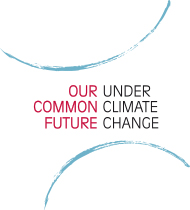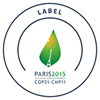Organizers :� Centre International de Recherche sur l'Environnement et le D�veloppement, Nogent sur Marne, France, International Institute for Applied Systems Analysis, Laxenburg, Austria
Date : July 8th, from 5:30 pm to 7:45pm
Location : University Pierre et Marie Curie, 4 place Jussieu, 75005 Paris
Expected number of participants : 50-100
Nature of participants : scientists, decision makers
Keywords : integrated assessment modeling, advances, climate policies
Conveners:
- Nebojsa Nakicenovic
- Jean-Charles Hourcade



